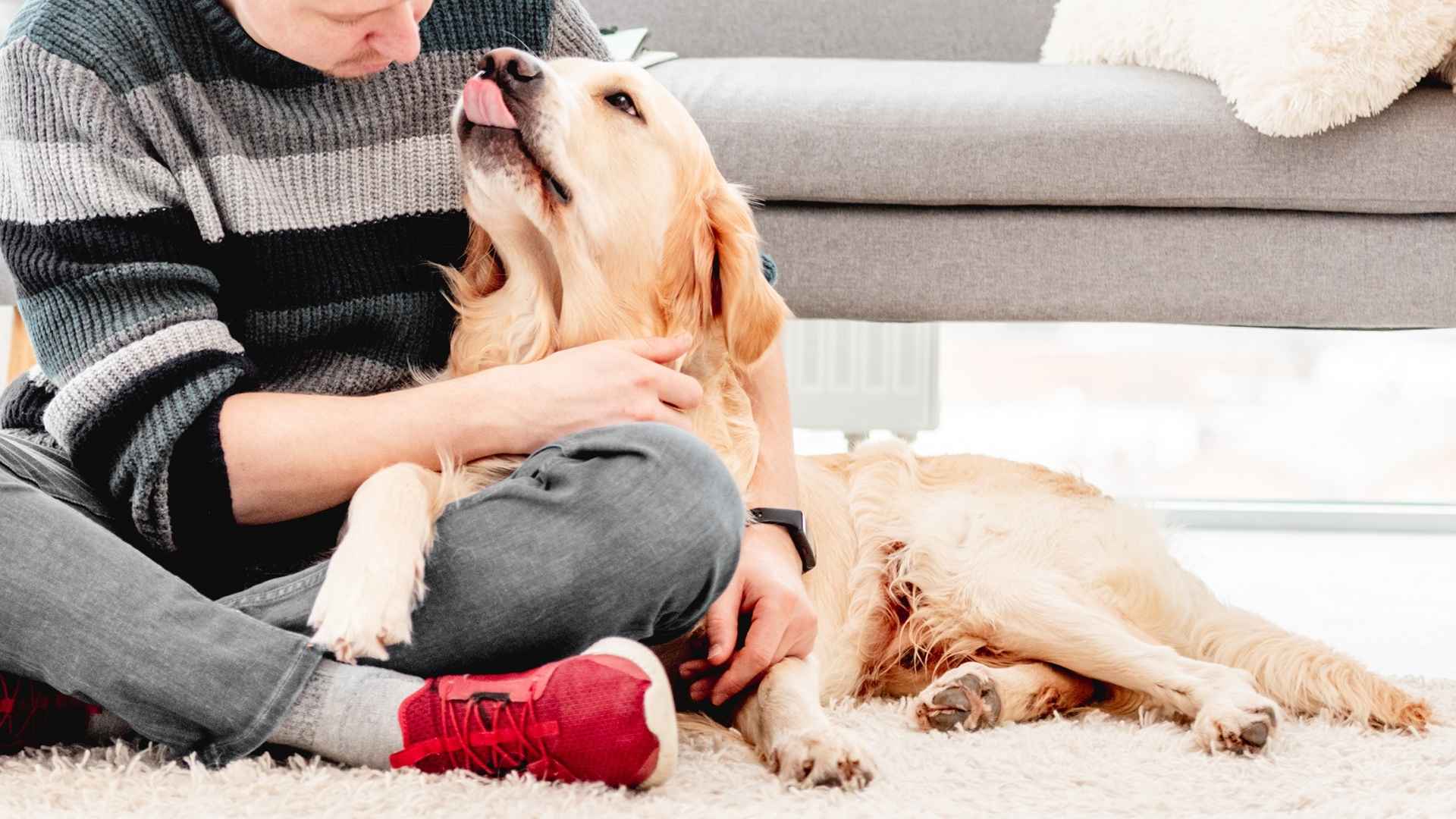Approximately 6 out of every 100 people (or 6% of the U.S. population) will experience post-traumatic stress disorder (PTSD – a condition that can deeply affect daily life) at some point in life. Many of these individuals, including veterans, also struggle with anxiety, making everyday activities feel overwhelming. While treatment options vary, psychiatric service dogs (PSDs) have emerged as a powerful source of support.
These specially trained dogs don’t just offer comfort and companionship—they can perform critical tasks like interrupting anxiety episodes, creating personal space in crowds, and offering a grounding presence during flashbacks. To serve effectively, PTSD service dogs must be naturally calm, affectionate, obedient, and highly adaptable. While many breeds can be trained for this role, some are more predisposed to succeed in service work.
If you’re considering a service dog for PTSD or anxiety, choosing the right breed can make all the difference. In this guide, we’ll explore the best service dog breeds for people with mental health disorders, PTSD, and anxiety to help you find your perfect match.
Best Service Dog Breeds for PTSD and Anxiety
1. Labrador Retriever
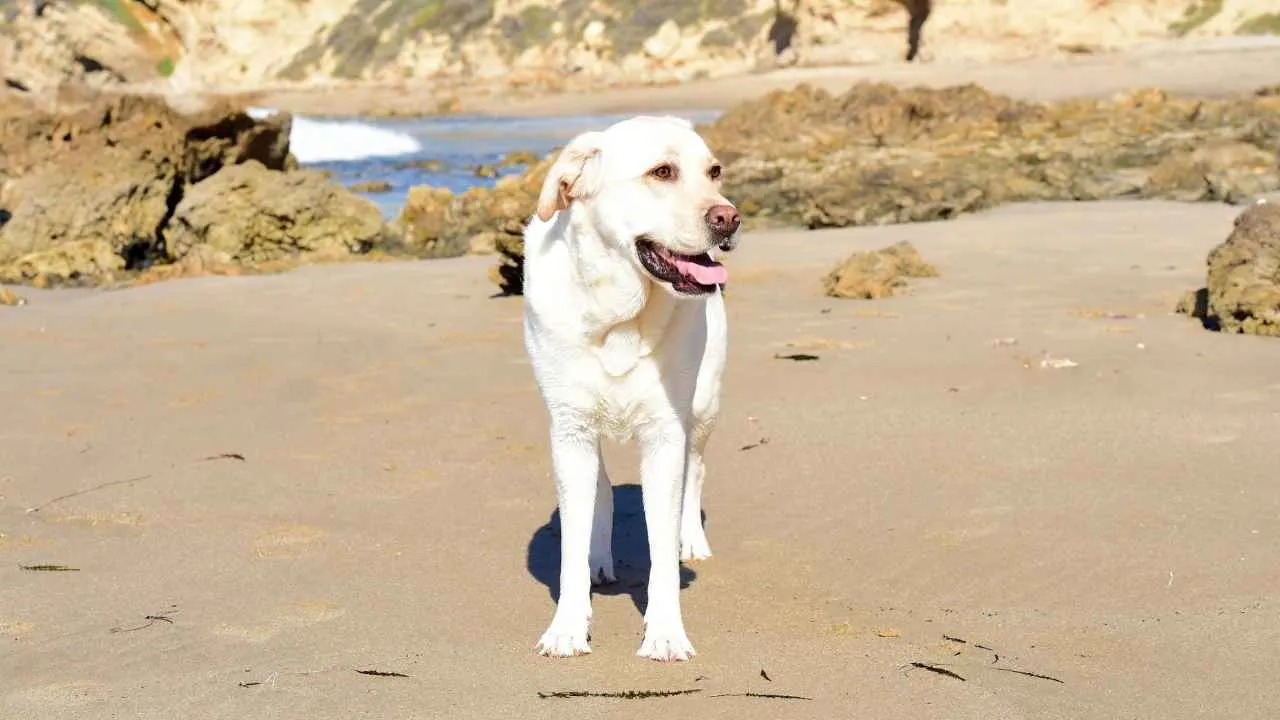
Labrador Retrievers have long held the title of one of the most beloved dog breeds in the U.S.—and for good reason. Known for their gentle spirit and intuitive nature, Labs have a way of sensing when their humans need a little extra love.
Whether it’s curling up beside you during moments of anxiety or offering a comforting nuzzle, these sweet-natured canine companions are natural emotional supporters.
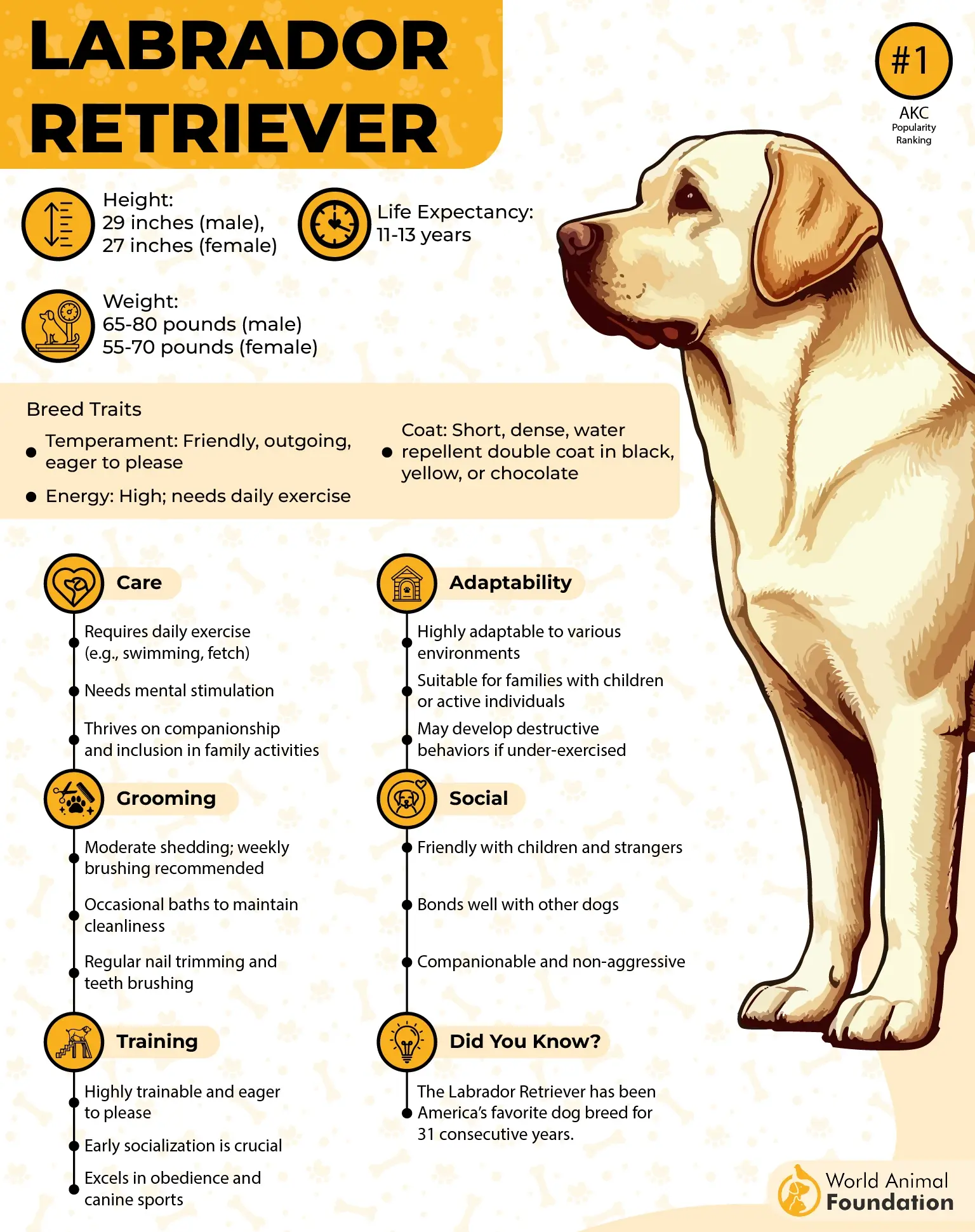
Their popularity in service roles isn’t by chance. Labradors are highly trainable, eager to please, and thrive when given a purpose. They can be easily trained to pick up on cues and follow commands, making them ideal for tasks like fetching medications, providing tactile grounding, or creating space in crowded areas.
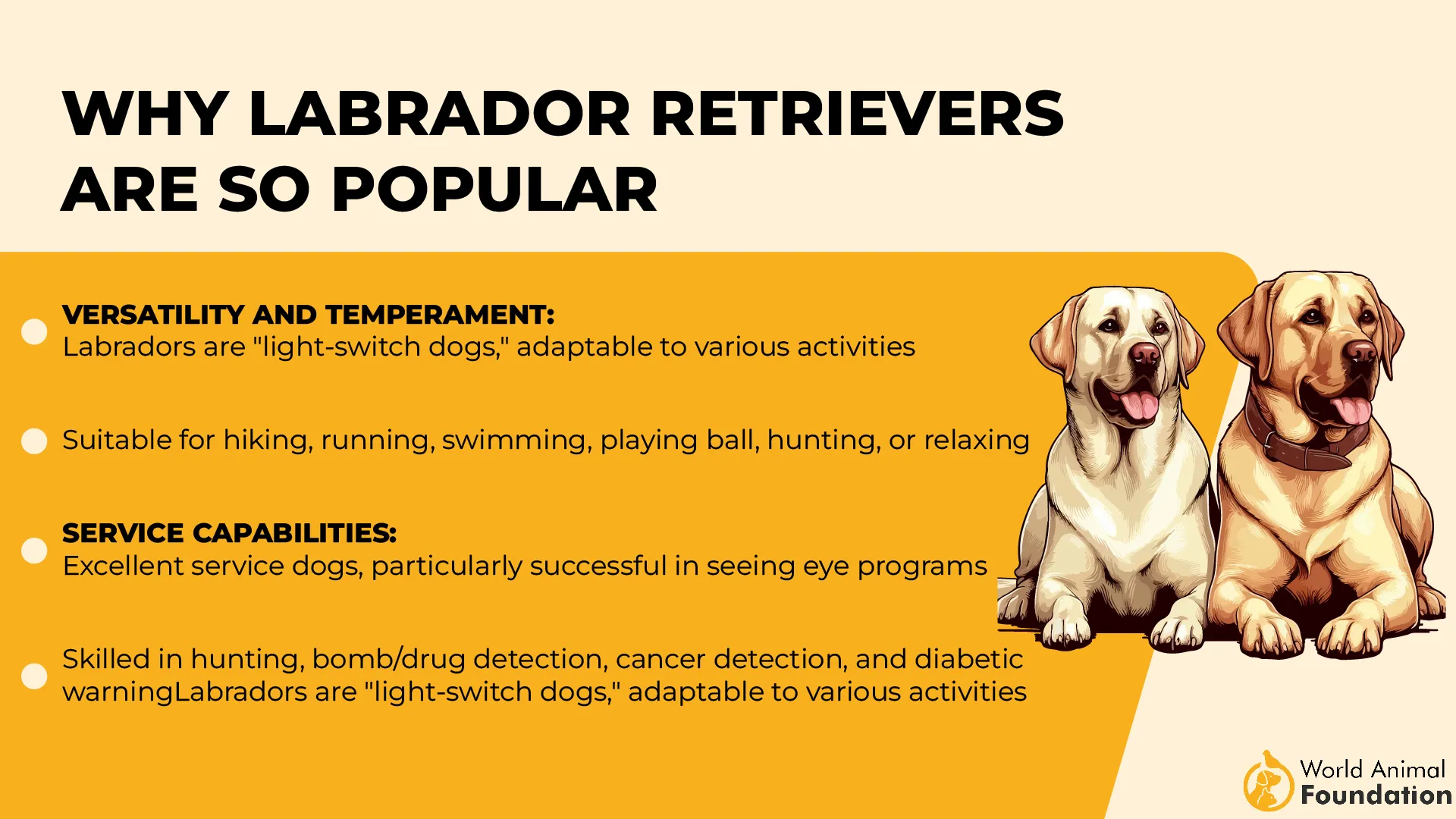
With the right training and regular exercise, Labs are calm, reliable, and focused—a perfect fit for those navigating PTSD or anxiety.
Here’s what makes Labs so exceptional in this role:
Loyal Companions: Labs stay close and offer quiet, constant reassurance.
Affectionate Nature: Their loving, snuggly presence helps ease emotional distress.
Social and Friendly: They’re great in public, offering comfort to people and other animals.
Built for Support: Their size makes them ideal for deep pressure therapy during anxiety.
Calm and Steady: Labs remain composed in stressful settings, helping reduce tension.
Eager Helpers: Smart and driven, they quickly learn tasks that support emotional well-being.
2. Golden Retriever
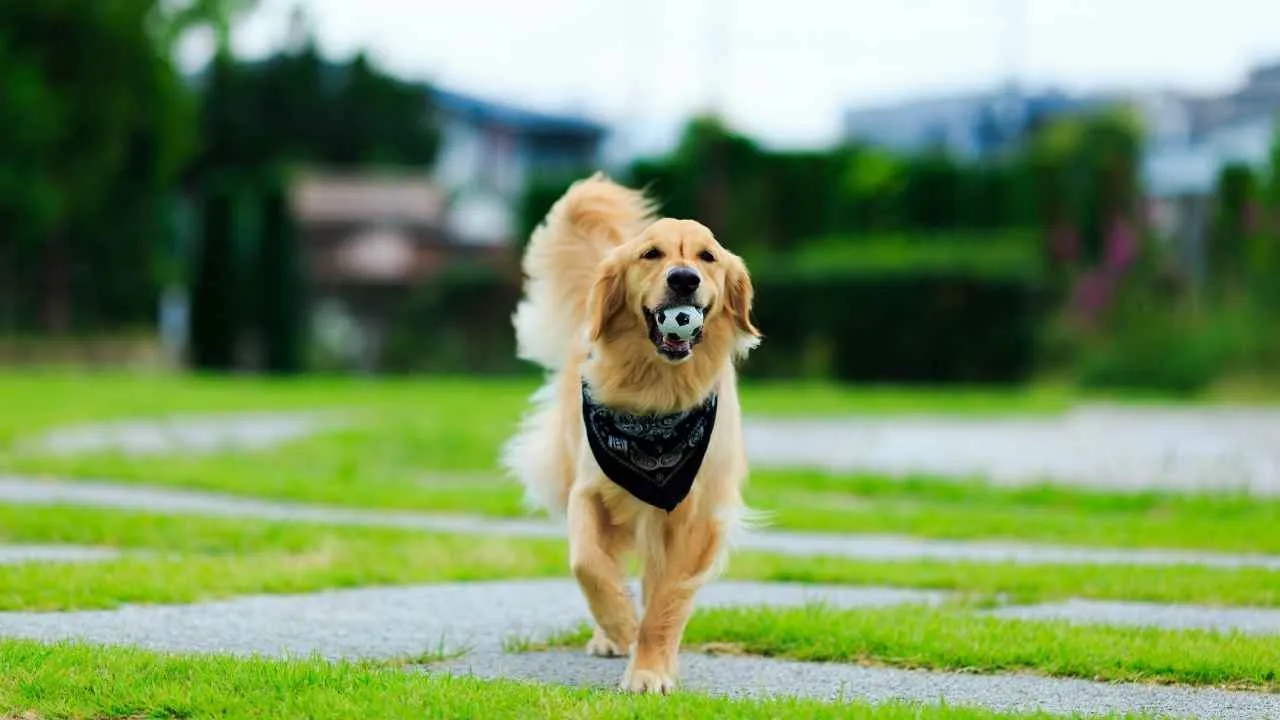
Golden Retrievers are sunshine in dog form—playful, gentle, and incredibly attuned to human emotions. Originally bred for retrieving game, these lovable dogs have found their calling as loyal companions and exceptional service animals. Their joyful nature and deep sensitivity make them an ideal choice for individuals living with PTSD or anxiety.

Known for their eagerness to please, Golden Retrievers are highly trainable and responsive. They thrive on positive reinforcement and love having a job, whether that’s fetching items, providing tactile comfort, or offering a calming presence during stressful moments.
While they can be easily distracted during early training, they mature into obedient, well-mannered companions with consistency and patience.
Here is why Golden Retrievers Excel in PTSD Support:
Calming Touch: Their size is ideal for grounding techniques like resting a paw or placing their head in your lap—gentle actions that ease anxiety without overwhelming you.
Emotional Intuition: Goldens naturally sense distress and respond with quiet comfort, often without needing a cue.
Social Ease: Friendly with kids, strangers, and other pets, they make outings and crowded spaces less stressful.
Highly Trainable: Intelligent and eager to please, Goldens quickly learn tasks like deep pressure therapy and behavior interruption and make ideal therapy dogs states AKC.
3. German Shepherd
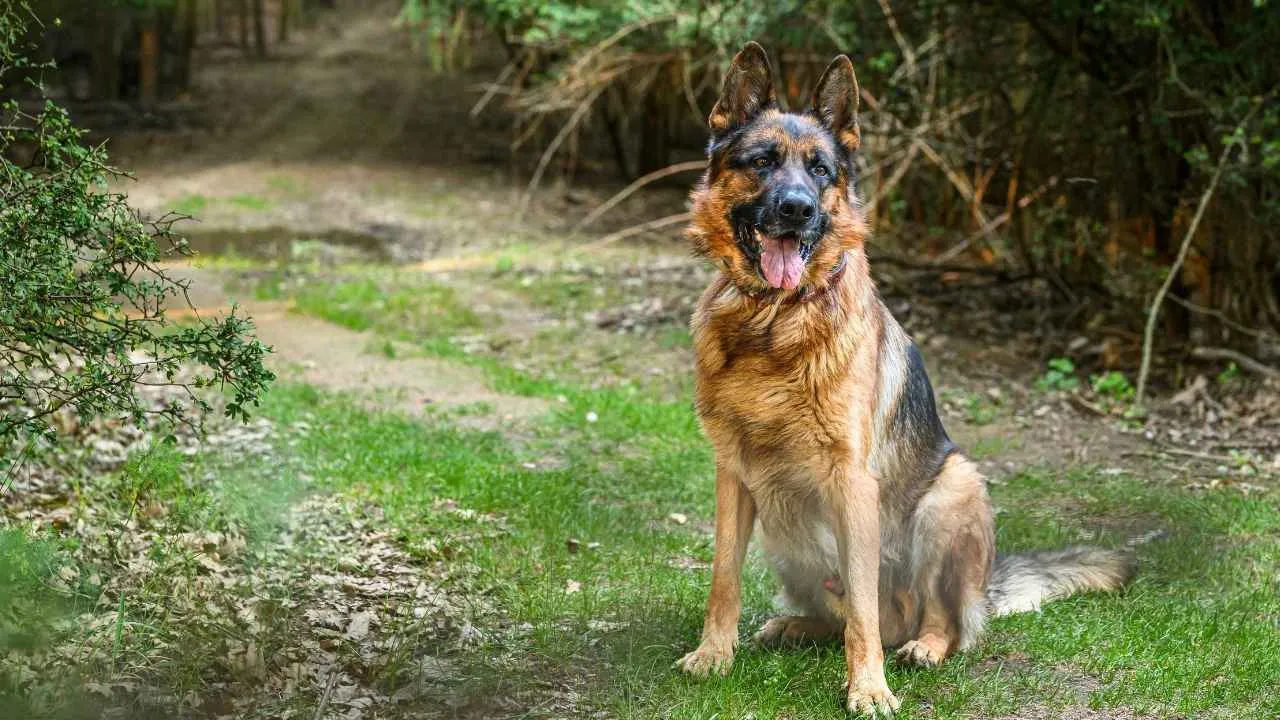
German Shepherds may be best known as police or military dogs, but there’s so much more to this loyal and intelligent breed. Beneath their serious reputation lies a devoted companion who thrives on purpose and connection. Their sharp minds and high energy levels make them ideal candidates for service work, especially in roles supporting individuals with PTSD or anxiety.
Because they’re naturally alert and responsive, German Shepherds can be trained to perform a wide range of psychiatric service tasks, including interrupting anxiety attacks, self-harming behavior, guiding their handler to safety, or waking them from nightmares. With proper training, they’re not only obedient but also gentle and reliable, even in public settings.

How German Shepherds Excel in PTSD Support:
Loyal and Protective: Their strong bond and natural protective instinct offer a deep sense of safety without needing aggression.
Emotionally Attuned: German Shepherds are highly intuitive, often sensing emotional changes and responding with calm support.
Task-Oriented: They thrive when given structure and responsibilities—perfect for service tasks like crowd buffering or behavior interruption.
Grounding Presence: Their steady demeanor helps anchor handlers during triggering situations, offering quiet reassurance.
Calm Confidence: When well-trained and stimulated, they remain composed and focused, making them reliable psychiatric companions.
4. Poodle
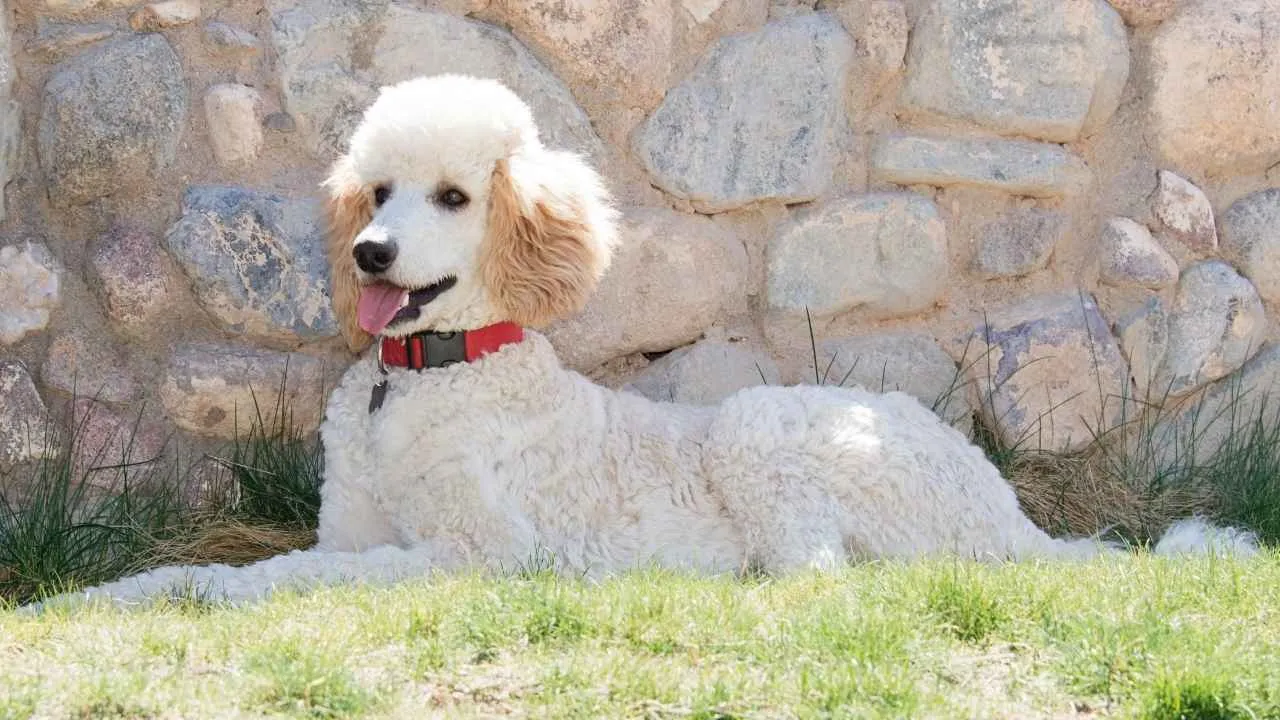
Poodles are more than just a pretty face with a stylish coat—they’re intelligent, affectionate, and deeply intuitive dogs that make exceptional service companions for those living with PTSD or anxiety. Whether you prefer a Standard, Miniature, or Toy Poodle, their temperament remains largely consistent across sizes: alert, loving, and eager to please.
As noted by Petplan, one of the standout features of this breed is its hypoallergenic coat. Though it requires regular grooming, the minimal shedding makes them a great choice for those with allergies. Their curly fur may be high-maintenance, but it adds to their charm—and it’s a small trade-off for everything else they bring to the table.
What makes Poodles Ideal for this Role:
Exceptionally Intelligent: Quick learners who easily master complex service tasks and respond well to emotional cues.
Emotionally In-Tune: Naturally perceptive, often sensing mood shifts and offering gentle comfort through touch or playful distraction.
Calming Presence: Their steady, affectionate nature helps reduce anxiety and makes stressful social situations feel more manageable.
Adaptable Companions: Poodles adjust well to various living environments and routines, whether in apartments or busy households.
Comforting Yet Alert: Friendly and non-aggressive, yet attentive and watchful—offering both emotional support and a reassuring presence.
5. Border Collie
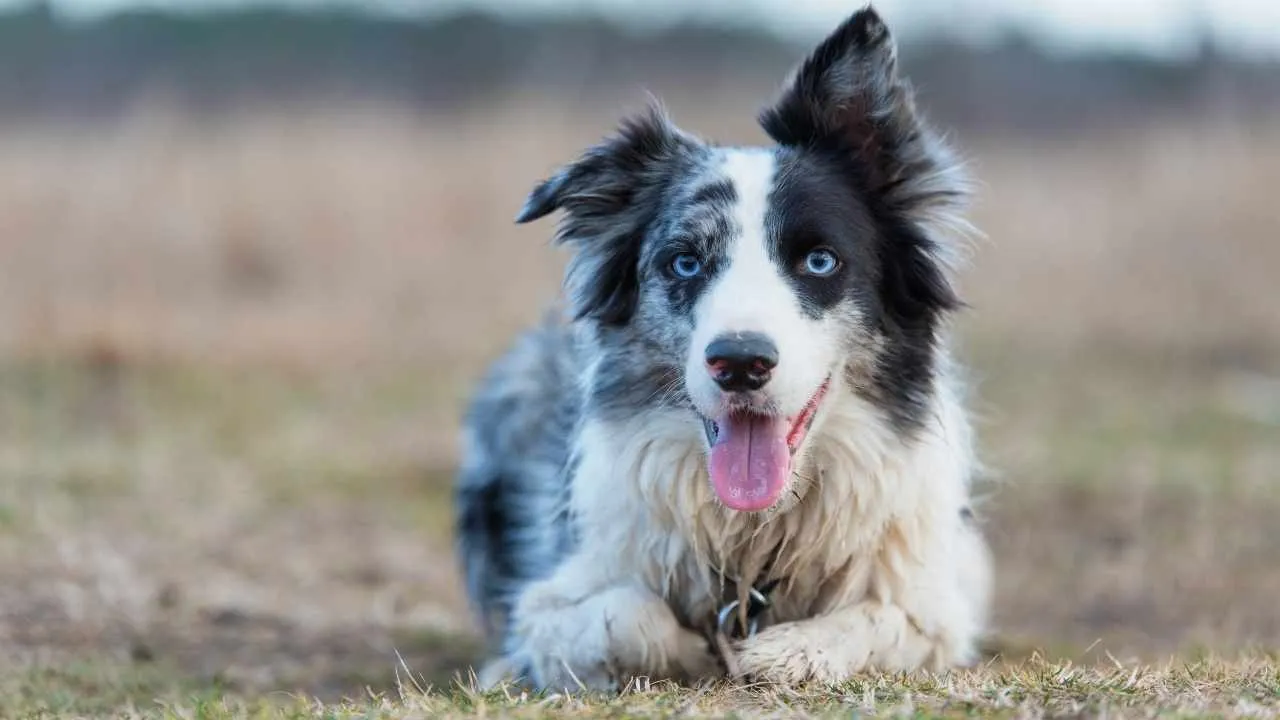
Border Collies aren’t just energetic fluffballs with bright eyes and bouncy steps—they’re also one of the smartest dog breeds around. Known for their sharp minds and unwavering work ethic, Border Collies make wonderful psychiatric service dogs for those who need a dependable, emotionally in-tune companion.
While they love to cuddle with their family members, Border Collies can be a bit shy around new faces. Being a herding breed, they sometimes try to “herd” young children, so they typically do best in households with older kids, according to Britannica. That said, once they bond with you, it’s for life, and they’ll be by your side through thick and thin.
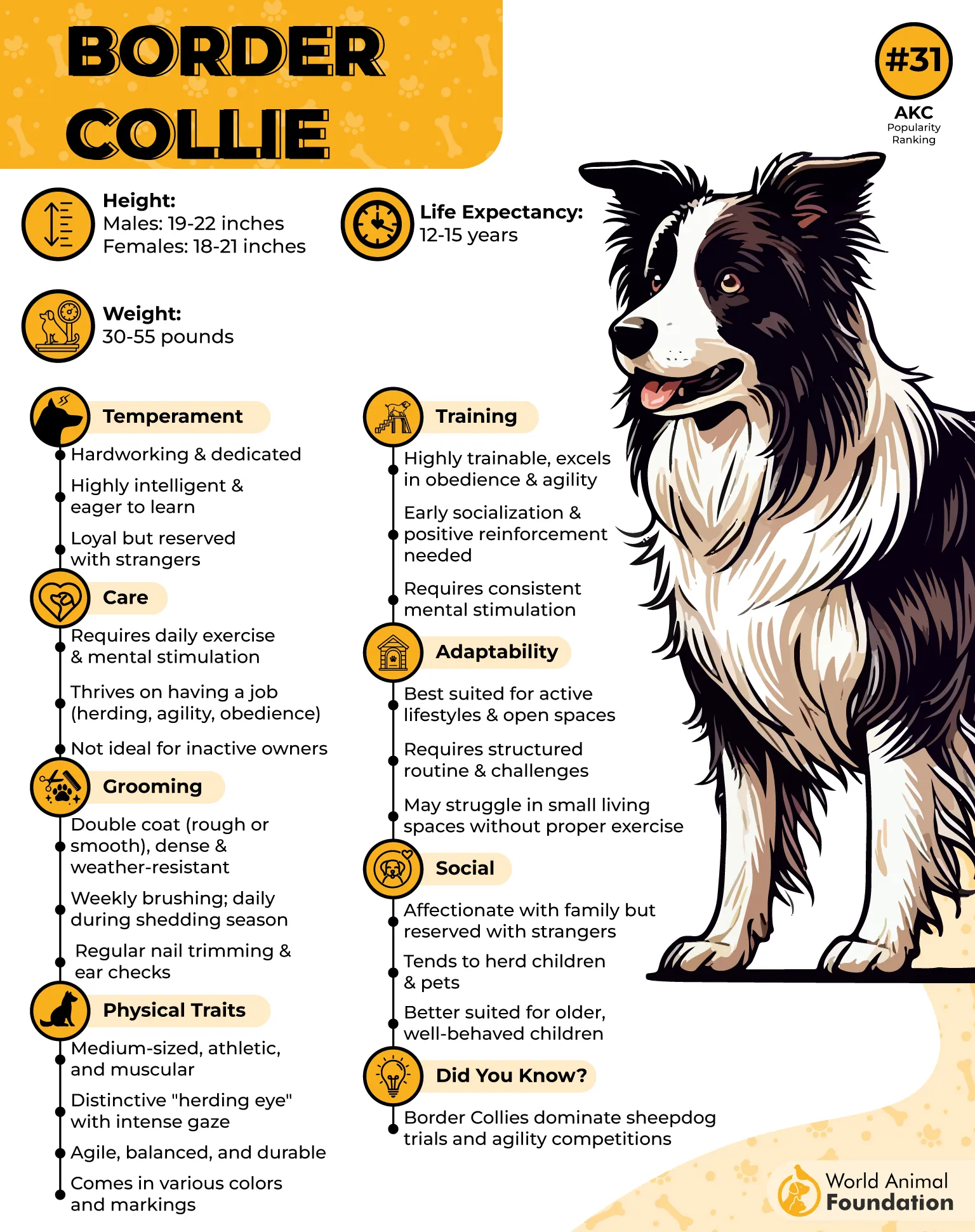
Why Border Collies Make Fantastic Psychiatric Service Dogs:
Quick Learners: Border Collies easily pick up advanced commands, from fetching meds to interrupting anxiety behaviors.
Emotionally Attuned: They sense mood shifts fast and often respond before you even ask for help.
Motivating Energy: Their playful spirit gets you moving—great for easing PTSD symptoms, depression, and anxiety disorders
Deeply Loyal: They form strong bonds and thrive when given a meaningful job to focus on.
You can train a Border Collie to perform specific tasks such as:
Interrupting repetitive behaviors (like scratching or pacing) by gently nudging you
Providing deep pressure therapy by leaning against you or lying across your lap during panic attacks
Retrieving medication when you’re unable to move or in distress
Creating a physical buffer in public areas to reduce sensory overwhelm or crowd anxiety
Waking you from nightmares with a gentle nudge or paw
Grounding techniques such as licking, nudging, or encouraging movement to help you refocus during anxious episodes
With their mix of heart, brains, and boundless energy, Border Collies are more than just great companions—they’re life-changing partners for those in need of ongoing emotional support and daily encouragement.
6. Cavalier King Charles Spaniel

If you’re looking for a gentle-hearted pup that practically oozes affection, the Cavalier King Charles Spaniel might just steal your heart. With their sweet temperament and calm nature, these dogs are often called the perfect lap companions—and for good reason. They’re cheerful, loving, and enjoy the company of people and other animals alike.
One of the most charming things about Cavaliers is how naturally they adapt to your lifestyle. Whether you’re always on the go or enjoy cozy days at home, they’ll happily follow your lead. Bred to be companions for British nobility, their instinct to comfort and stay close to their humans remains as strong as ever.
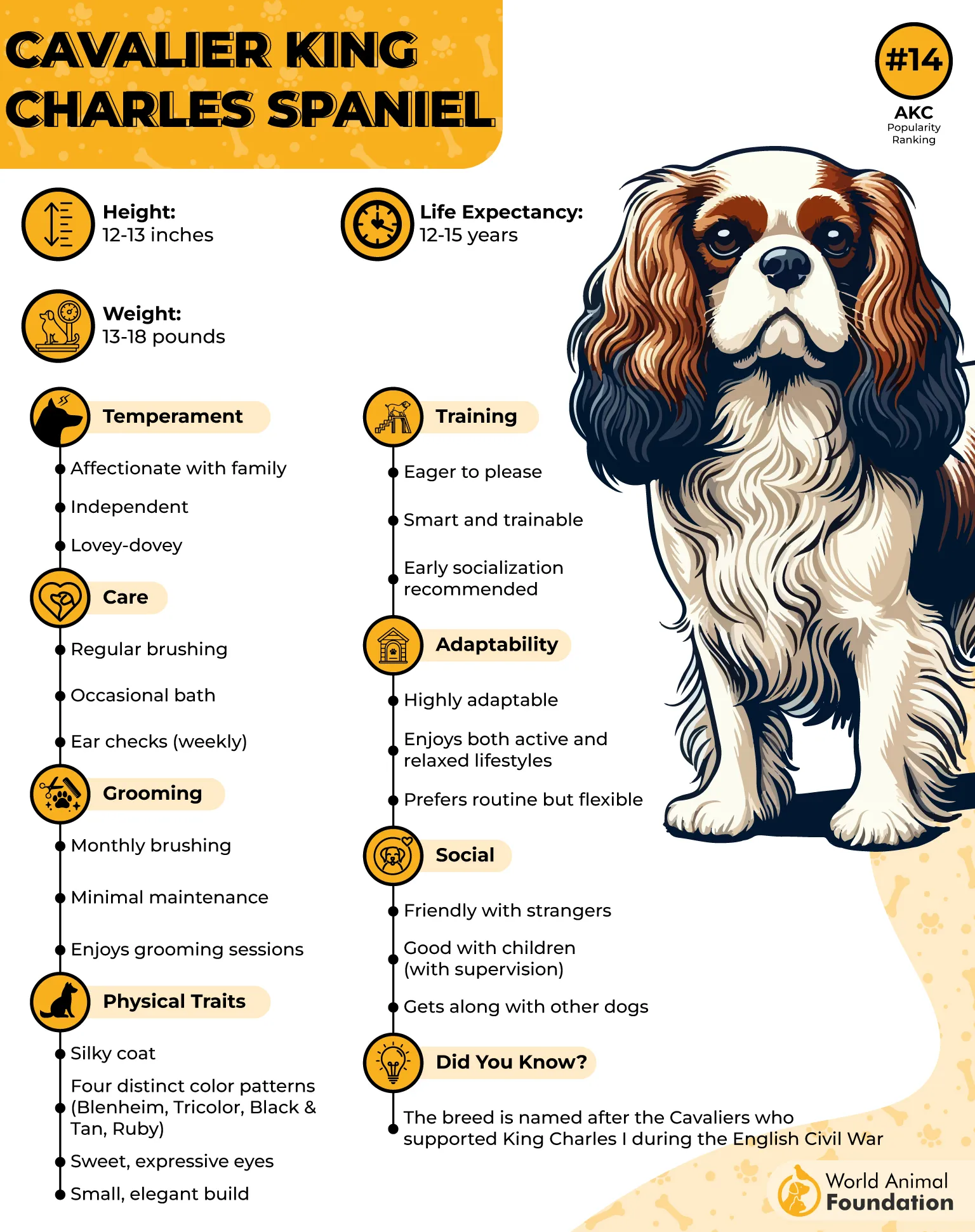
Why Cavaliers Are Great for PTSD and Anxiety Support:
Instinctive Comforters: Originally bred as lapdogs, they have a natural desire to soothe and stay close, which is especially helpful during moments of distress or anxiety.
Emotionally In-Tune: Cavaliers are incredibly empathetic and pick up on emotional changes quickly, offering quiet, calming companionship when it’s needed most.
Adaptable Living: Whether you’re active or prefer a low-key lifestyle, this breed will match your pace with ease.
Small and Portable: Their petite size makes travel, errands, and day-to-day outings more manageable for those who want to keep their support dog nearby.
The Cavalier King Charles Spaniel may be small, but their capacity to love and comfort is enormous. If you’re seeking a loyal, intuitive, and low-maintenance emotional support dog, this cuddly little companion may be the perfect addition to your life.
7. Pug

It’s nearly impossible to look at a Pug without breaking into a smile. With their round, wrinkly faces and soulful eyes, these charming little clowns bring joy wherever they go. Their goofy, puppy-like nature sticks with them throughout life, making every day a little brighter.
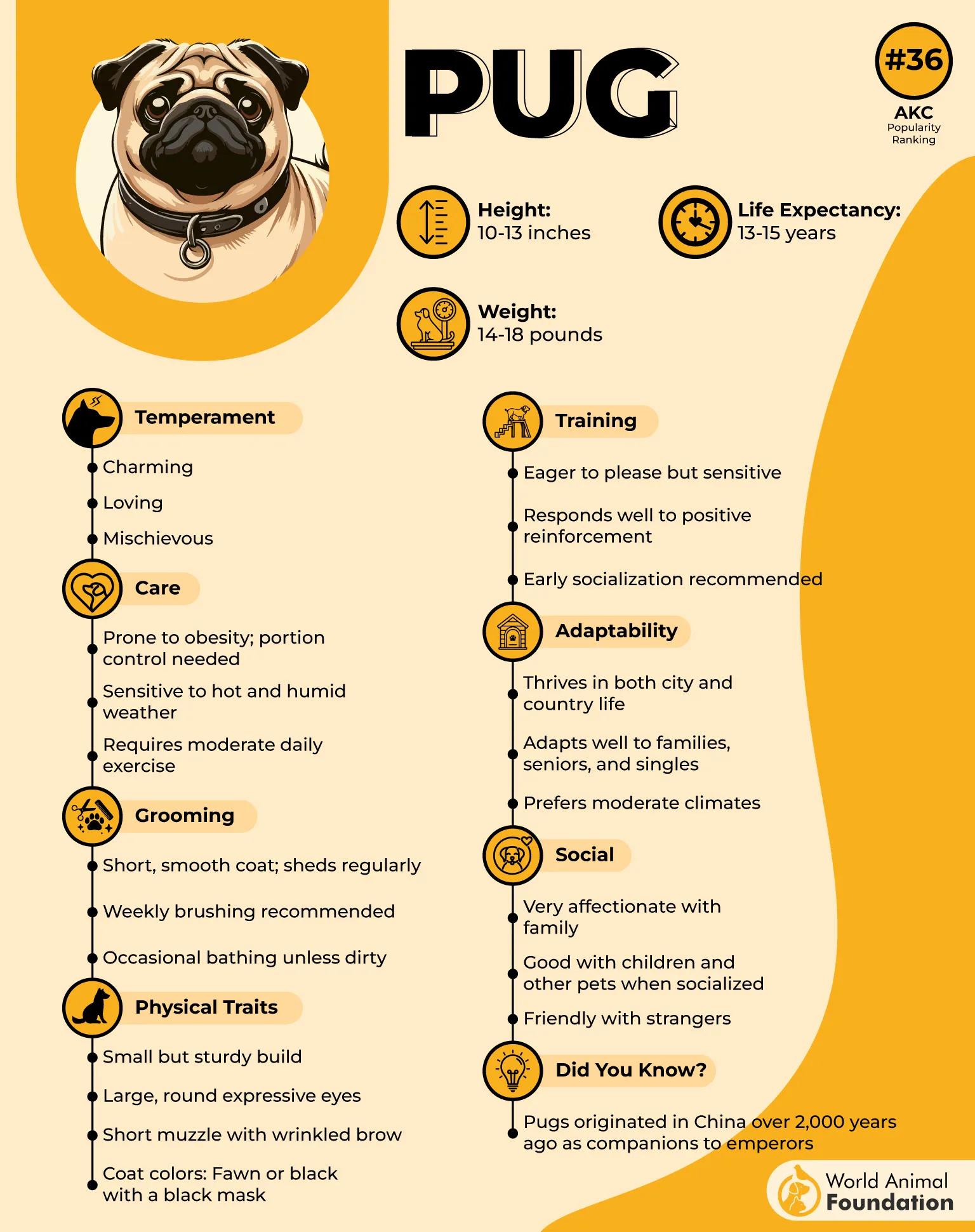
As noted by Hillspet, Pugs are affectionate, playful companions who thrive in just about any home, whether you live solo, have a house full of kids, or share space with other pets. Their small size and big hearts make them easy to love and easy to live with.
These sturdy little charmers are incredibly patient and gentle with children, earning them a reputation as one of the best small breeds for families. Pugs may have a streak of stubbornness, which is why they require training, little patience, positive reinforcement, and plenty of treats!,
What makes them ideal for this role:
Affectionate Presence: Pugs stay close, offering steady comfort during stressful moments.
Emotionally Intuitive: They sense mood shifts and respond with calming behavior.
Strong Bond: Loyal by nature, they stay attuned to their handler’s emotional needs.
Eager to Please: Respond well to reward-based training for support tasks.
Calm and Adaptable: Gentle and easygoing, they soothe anxiety in any setting.
Here are a few tasks Pugs can be trained to perform:
Deep Pressure Therapy: Their compact but sturdy frame allows them to rest their weight across your lap or chest, providing grounding pressure during high-anxiety moments.
Tactile Stimulation: A loving nudge, a paw on your hand, or simply leaning in close can help interrupt spiraling thoughts or panic episodes.
Intruder or Danger Alerts: Despite their cuddly looks, Pugs will bark to alert you of unexpected visitors or unusual noises. They can also learn specific alert cues to notify you of emergencies.
Conclusion
When it comes to choosing the best service dog breeds for PTSD and anxiety, it’s clear that not all dogs perform tasks equally. From large dogs like the Bernese Mountain Dog and Boxers to smaller breeds, each assistance animal offers unique benefits tailored to the needs of their owners.
Whether trained as therapy dogs, guide dogs, or emotional support animals, these dogs provide more than companionship—they offer vital mental stimulation and help with daily tasks that improve quality of life for many veterans and individuals with psychiatric disorders or physical disabilities.
Service dog training ensures these dogs have the good manners and skills necessary to assist their person effectively, whether it’s interrupting panic attacks, providing deep pressure therapy, or simply offering unconditional love.
Mixed breeds and purebreds alike can excel, proving that the best breeds for emotional support vary widely. Ultimately, the bond between a service dog and their owner, whether it’s a small child or adult, exemplifies the power of assistance dogs to bring comfort, security, and hope every day.


